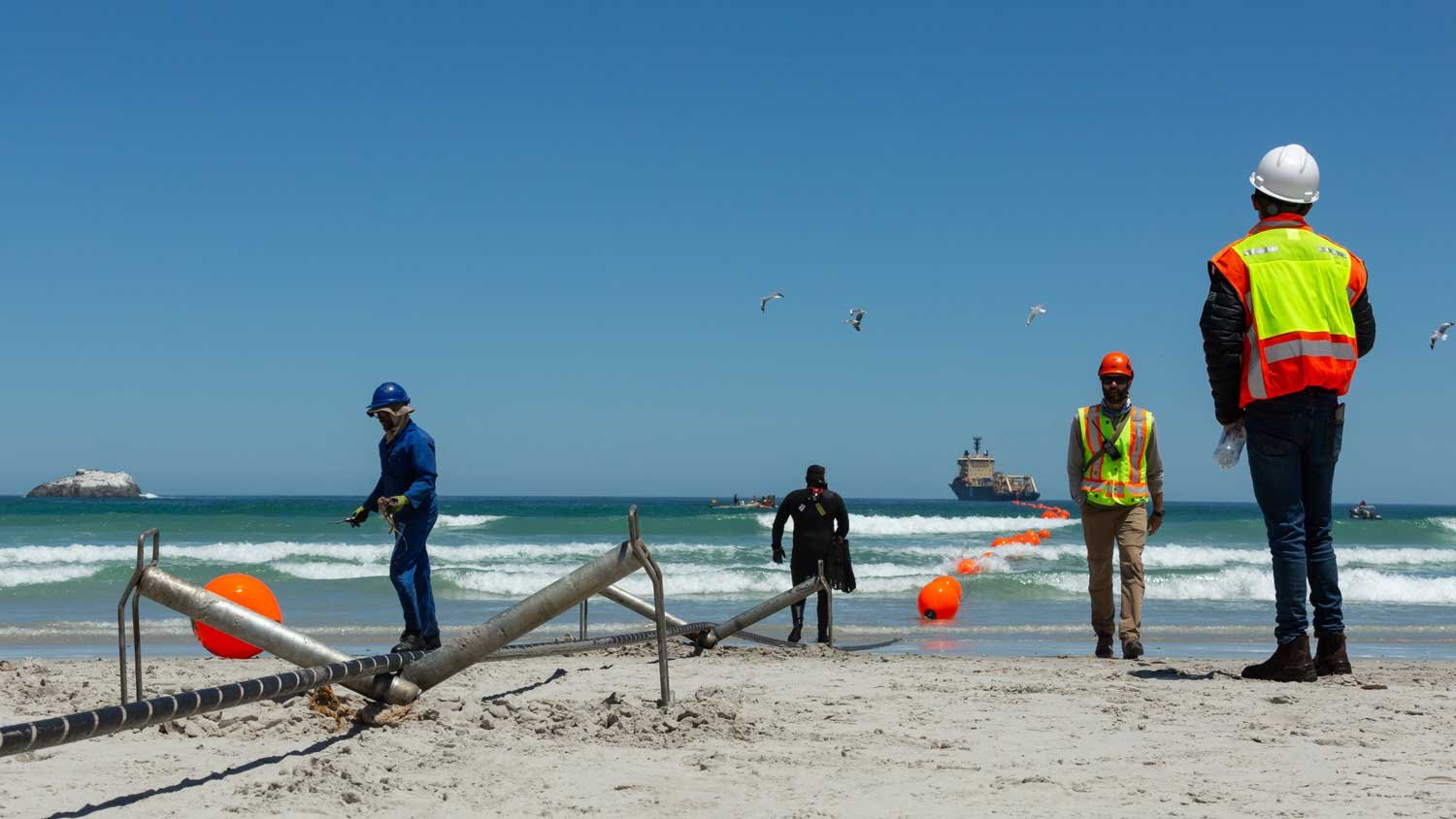Meta’s Facebook is joining the telecoms space and they have decided to come out of the gates with the longest undersea fiber optic cable at 45000km. To make this all happen they formed the 2Africa group which comprises other telecom operators. China Mobile International, Djibouti Telecom, Meta (Facebook), MTN GlobalConnect, Orange, Saudi Telecom Company (STC), Telecom Egypt, Vodafone, and WIOCC is the full list of the consortium.
The progress so far
The plan is for this fiber to cover the east and west sides of Africa. 46 landing points have been established in a total of 33 countries with South Africa being the latest one. There is also a 2Africa Pearls branch connecting to the Middle East and India.
2Africa subsea cable system will support the western and eastern sides of Africa, once complete in 2023 and 2024 respectively,
MTN SA
This fiber cable will be adding an additional 180Tbps of capacity to Africa’s internet. To get an idea of it, Zimbabwe’s average internet bandwidth for Q2 2022 was just under 100Gbps. That is 1800 times what satisfies Zimbabwe so it is a lot of capacity. Of course, all this bandwidth is not going to South Africa but rather it is the capacity of the main 2Africa cable.
Once it goes live, 2Africa will have the highest bandwidth capacity as well as being the only Pan-African subsea cable covering the east and west sides of Africa.
What’s the big deal with this cable?
Additional capacity
2Africa is just an additional link between Africa and the rest of the world when it comes to connectivity. That’s more capacity to connect with the world. Think of it as this. We already have 1 pipe irrigating a field at a certain rate in a field. That’s the internet capacity we already have right now. 2Africa is a second pipe coming in to irrigate the same field meaning the time we take irrigating is reduced.
In internet terms, Africa will have bigger pipes to connect to the world. Bigger pipes translate to faster internet as the obvious benefit, which makes sense considering Africa’s population has grown by over half a billion. In the same period, the internet penetration rate for Africa has gone from 1% to 30% and it’s a pretty exponential-looking graph.
So existing infrastructure was starting to struggle a bit with the rise in demand for internet services. And since bandwidth is a limited resource, all it meant is to manage traffic, speeds may need to be reduced.
Cost
Having more options means that there is competitive pricing of internet bandwidth. For coastal countries and especially those with landing sites for these undersea cables, bandwidth is quite affordable. This is primarily because IAPs in these countries have a direct link with the supplier which in this case is 2Africa.
2Africa is at the moment one of over 25 under sea cable providers servicing Africa and them coming into play means IAPs can negotiate for cheaper bandwidth which will also translate to the end user getting cheaper internet.
Availability/Downtime
This now goes to how networks work. A few years ago, a major fiber link owned by Liquid was damaged by a farmer in South Africa causing massive internet blackouts in parts of Zimbabwe. How did this not affect every Liquid Home subscriber? This is because IAPs do not rely on one internet provider. They often have backups such that if one fails they can switch over to another and use that whilst they solve the issue with the other.
2Africa is coming in as an additional bandwidth wholeseller and one that is convenient to us on the southern side of Africa. And more of these players can be strategically chosen by IAPs to improve on availability of the service that they sell to you and me. So if a fault occurs on one link, traffic can be redistributed to other links and the service stays up.

What’s your take?